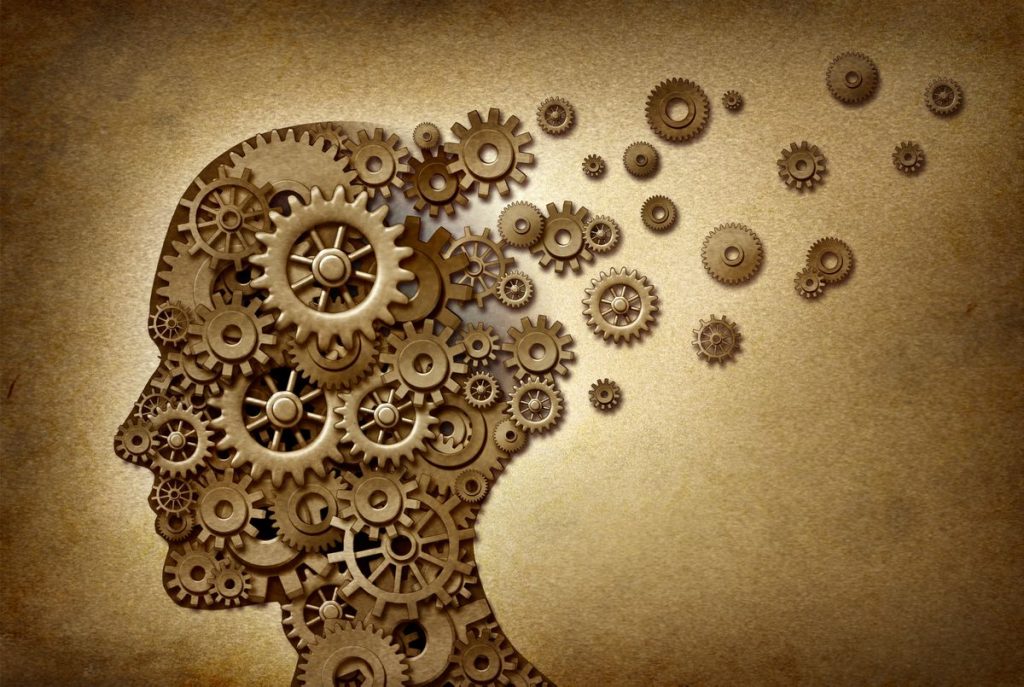
What about Alzheimer’s disease?
So, between forgetting the movie you saw the day before or adding the names of the singers, what could be more worrying?
In general, Alzheimer’s disease is associated with episodic memory loss. Patients complain that they no longer remember the events they went to, the conversations they had, the things they did. This type of memory is most frequently tested in neuropsychology when assessing dementia, and this type of memory has also been the subject of much study in research on Alzheimer’s disease.
However, a new example has emerged in clinical research, especially in the laboratory where we do our research.
Recent studies show that semantic memory is first affected during Alzheimer’s disease. Before forgetting the memories of the events lived, patients show a gradual decline in their general knowledge.
For example, they have more difficulty naming celebrities like Albert Einstein or famous seniors like Pepsi or Deszardins than healthy seniors. They also find it difficult to answer questions about the biographies of these celebrities (e.g., Maurice Richard, yes or no singer), answer specific questions about objects or animals (ostrich runs, flies or swim?) Or draw objects such as harmonica, helicopter or igloo. To determine.
Symptoms 12 years ago
According to a study that estimated several hundred elderly people on various cognitive functions, people who develop Alzheimer’s disease have semantic memory deficits for up to 12 years with dementia. Difficulties of Semantic Memory Before forgetting living events, spatial-temporal confusion, loss of personal influences, or difficulties of speech arise.
However, these defects are rarely reported when patients complain about their memory because they usually find a way to compensate for these difficulties in their daily lives. They use portfolios such as “subject” or “trick” to describe concepts that can no longer be named. This specifically explains why semantic memory has been less studied in relation to Alzheimer’s disease.
Above all, do not be afraid
As we age, we worry about our memory and fear Alzheimer’s disease. This is absolutely normal. In clinical neuropsychology, we also see many older people complaining about their memory, even those who eventually have no trouble! Therefore we should not be vigilant in short-term monitoring, because subjective complaints are not associated with actual deficits. These complaints, for example, may be related to anxiety or depressive symptoms or a feeling of loneliness.
After all, knowing the first signs of Alzheimer’s disease allows us to search for the first manifestations in ourselves and our loved ones. When we see that the words “on the tip of the tongue” are too much for us, we can no longer tell the stories exactly as before or have trouble naming or using certain everyday objects – and whether this worries us or worries our loved ones – may be related to scheduling a visit to the doctor or neuropsychologist.
Fortunately, there are activities that contribute to our cognitive health. First, intellectual stimulation is important: reading books, doing sudokus, crosswords or puzzles, playing board games, and doing social activities are examples of actions that improve our resistance to developing cognitive impairment. Also, the cleanliness of life is very high. Getting regular physical activity, eating a healthy diet and following good sleep habits are good for physical and cognitive health.





More Stories
“Avatar: The Way of the Water”: The Great Return of James Cameron
To end polarization
Pokemon says goodbye to Ash and Pikachu!